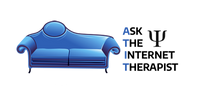Obsessive-Compulsive Disorder (OCD) Signs and Treatment
Posted by Jef Gazley, M.S.,LMFT,DCC on Aug 31st 2022
Obsessive-Compulsive Disorder or OCD is a particularly debilitating psychiatric condition. Generalized Anxiety Disorder or GAD, Obsessive-Compulsive Disorder, ADD or Attention Deficit Disorder are generally believed to be a family of disorders with slightly different symptoms.They all can exist together and people suffering from Obsessive-Compulsive Disorder often exhibit phobias. Agoraphobia or fear of being outside in public is just one of them. GAD can further develop into Anxiety Attacks and one of the symptoms of untreated ADD is panic. Tourette's Syndrome and Trichotillomania and some learning disabilities are believed to be part of the same family.
The main symptom of anxiety disorders is anxiety or panic. Panic Attacks tend to be more discreet symptoms in a variable fashion, and GAD is more general in nature. Obsessive-Compulsive Disorder shows itself most often in having irrational beliefs that a person cannot stop thinking about or compulsive activities aimed at relieving the obsessive thoughts. This does not relieve the problem. ADD is a learning disorder that shows itself in distractibility, impulsiveness, and at times hyperactivity or anxiety. Phobias are particular irrational fears. Tourette's Syndrome is the compulsion to scream out obscenities and or display facial grimaces. Trichotillomania is the compulsion of pulling ones hair or picking scabs.
Obsessive-Compulsive Disorder is characterized by either obsessive thoughts or compulsive behavior and often shows itself in both symptoms. In fact, the ritualized compulsive behavior exhibited in Obsessive-Compulsive Disorder is usually a futile attempt to ease the anxiety of the obsessive thoughts. The person is usually aware that the thoughts are not reality based and also are aware that the repetitious behavior would have no way of taking care of the obsessions, but are unable to stop.
Often the fears are of dying or some other catastrophic event. Excessive hand washing to stave away germs, counting in a ritualized fashion to be safe, having to check whether the door is locked numerous times are all common compulsions. There is also a tendency to hoard things that are useless but felt to be vital. The person feels that their behavior makes no sense, but also feels that if they stopped the behavior something horrible would occur.
Both psychotherapy and chemical therapy are needed to resolve this issue. Therefore a psychiatrist and a therapist who specialize in this area would be helpful. Usually, an anti-depressant such as Paxil, Anafranil, or Luvox is used. Given the right combination of medication and psychotherapy, this condition can be treated effectively in a moderate amount of time. The newer medications are very effective compared to the medication that was available for clients several years ago.
All of the staff members of AskTheInternetTherapist.com are quite competent in working with this condition. Jef Gazley, M.S., LMFT, DCC has specialties in this area.

